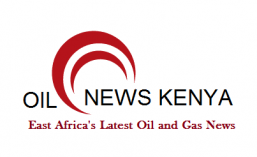Nairobi-headquartered support services and logistics company Atlas Development & Support Services (ADSS or Atlas cross listed on the Growth Enterprise Market Segment (‘GEMS’) of the Nairobi Securities Exchange, having successfully raised KES 450 million (US$5 million) through a private placement to Kenyan investors.
According to Atlas CEO Carl Esprey the listing hopes to tap from the growing opportunity in the region as well as leverage on local content.
“The strong interest from Kenyan investors is recognition of the opportunity to create a world class development and support services provider in Eastern Africa. We have demonstrated robust financial performance, world class service delivery and regional scale to position Atlas as the best way to gain exposure to this opportunity,” says Esprey.
The funds raised in the placing will be used to provide additional capital for organic growth and acquisitions around Atlas’s support services offering in Kenya and the region.
The placing, which was offered solely in Kenya, was completed through the issue of 39,139,827 new ordinary shares at a price of KES 11.50 per share (being 8.13p, in line with the closing price of the Company’s shares on AIM on 20 November).
Andrew Wachira, Acting CEO, NSE says, “The cross listing of Atlas is another major step towards our goal of ensuring that companies that have substantial operations in Africa are accessible to both Kenyan and international investors. This cross listing is historic for our exchange and it is directly in line with Vision 2030, which envisions that the growth in Kenya’s natural resources industries will also help grow our financial institutions.”
“The cross listing further justifies Kenya’s stance that its financial market remains very attractive to both local and international investors. ” adds Mr Wachira.
Atlas recently commenced construction on a KES 180 million (US$2 million) planned investment to build a logistics hub in Lokichar, Turkana County. This will help companies and government operate more effectively across the Turkana basin.
Atlas has invested KES 1.4 billion (US$ 15 million) in Kenya over the last 12 months and plans to invest over KES 4.5 billion (US$ 50 million) in Kenya over the next five years.
Carl Esprey says, “We’re Kenyan-headquartered and our core operation was founded here in Nairobi. Today we’re proud to also call ourselves a Kenyan-listed company. The cross listing will provide further local support for Atlas and represents a natural alignment with our Kenyan stakeholders and customers.”
The shares have been offered today on the GEMS market – at a price of KES 11.50 (8.13p) per share – a slight discount on London.
Edward Burbidge, CEO says, “This cross listing is a very exciting transaction for both the Nairobi and London financial markets. Here in Kenya it will provide investors with a unique opportunity to gain exposure to this sector in Eastern Africa, through a company that has 100 per cent of its shareholder register tradable in both Nairobi and London.”
Burbidge Capital acted as placing agent and Nominated Advisor to the placing and cross listing.
Atlas provides international standard turn-key development and support service solutions to multiple sectors, including oil & gas, mining, geothermal, construction and infrastructure. It employs over 700 Kenyans in delivering engineering, infrastructural development projects and workforce accommodation solutions in Kenya, Tanzania, Djibouti, Mozambique and Ethiopia.

